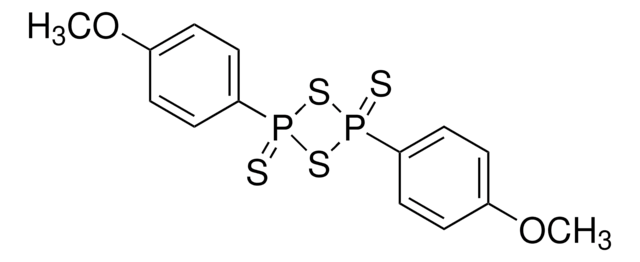176230
Triethyloxonium tetrafluoroborate solution
1.0 M in methylene chloride
Synonym(s):
Et3OBF4, Meerwein′s reagent, Triethyloxonium fluoroborate
About This Item
Recommended Products
Quality Level
concentration
1.0 M in methylene chloride
density
1.328 g/mL at 25 °C
functional group
ether
storage temp.
2-8°C
SMILES string
F[B-](F)(F)F.CC[O+](CC)CC
InChI
1S/C6H15O.BF4/c1-4-7(5-2)6-3;2-1(3,4)5/h4-6H2,1-3H3;/q+1;-1
InChI key
IYDQMLLDOVRSJJ-UHFFFAOYSA-N
Looking for similar products? Visit Product Comparison Guide
Application
Signal Word
Danger
Hazard Statements
Precautionary Statements
Hazard Classifications
Carc. 2 - Eye Dam. 1 - Skin Corr. 1B - STOT SE 3
Target Organs
Central nervous system
Supplementary Hazards
Storage Class Code
6.1B - Non-combustible acute toxic Cat. 1 and 2 / very toxic hazardous materials
WGK
WGK 3
Flash Point(F)
Not applicable
Flash Point(C)
Not applicable
Personal Protective Equipment
Choose from one of the most recent versions:
Already Own This Product?
Find documentation for the products that you have recently purchased in the Document Library.
Customers Also Viewed
Our team of scientists has experience in all areas of research including Life Science, Material Science, Chemical Synthesis, Chromatography, Analytical and many others.
Contact Technical Service










